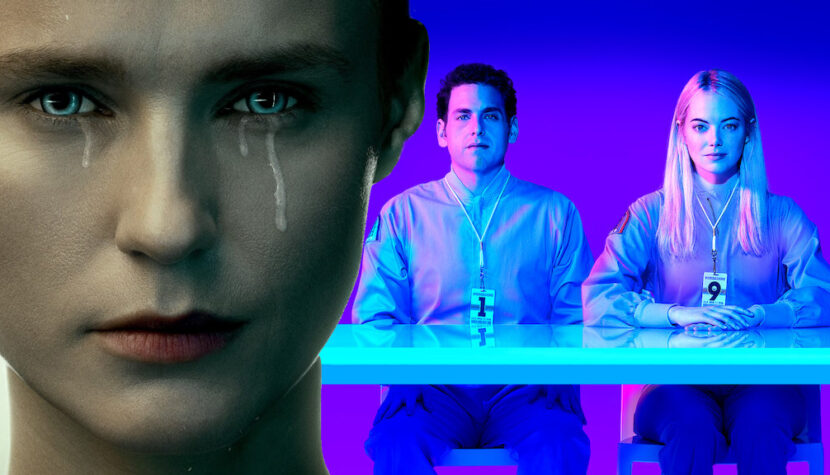6 science fiction series in which the initial idea was squandered

The science fiction series that disappointed us are countless, of course. However, I’ll focus on relatively recent titles where we still remember the feeling of disappointment that dominated us during the viewing. I’ve listed these science fiction series that, in my opinion, were based on very interesting ideas; their first episodes introduced us to an intriguing world only to suddenly lose momentum and fall apart.
Westworld

This series initially had such a strong impact that it belonged more among the greatest science fiction series of all time. It delved deeply into the human soul, leveraging advancing artificial intelligence. The somewhat clichéd idea that robots have souls found an interesting space in a theme park. The concept was drawn from Michael Crichton’s novel, previously adapted into a film in 1973. That earlier, technically imperfect version seems much more elegant and coherent to me than what the series Westworld became. Suffice it to say, this incredibly expensive production, created with much labor and little audience approval, ended after four seasons, leaving us feeling unsatisfied because too many questions about the futuristic park remained unanswered. All it needed was to rein in the reins of scriptwriting indulgence a bit and simplify the concept instead of reveling in its dubious mystery.
Terra Nova

I’ve written about this many times, and I’ll use this opportunity to say it again—it was one of the more interesting science fiction series concepts I’ve encountered, yet completely botched. To cut a long story short (since one could cite production woes ad nauseam), paradoxically, it wasn’t a lack of money that caused Terra Nova’s downfall, but rather mismanagement of those millions. The Fox series turned out to be too costly to produce (at around $14 million per episode), and the effects were still unsatisfactory, resembling CGI created by a group of technical college students. The first season concluded our adventure with this series due to these reasons, despite its potential for long seasons. Let’s recall—Earth is in such bad shape that people, using modern technology, decide to travel back in time to the era of dinosaurs to continue life in a bunker, disrupting evolution in the process. If this were another Stargate, the concept probably would’ve been embraced by the audience, amassing loyal fans. Instead, all we can do is shrug our shoulders.
Silos

A lot of hype about nothing. That would summarize all the excitement over Apple’s science fiction series. Amazon’s Fallout eats Silos for breakfast without even needing to take a sip. It’s undeniable that the creators of Silos were heavily inspired by game aesthetics and cinematic post-apocalypse themes. The concept involves placing people underground in a massive bunker to continue civilization shortly after a mysterious catastrophe, about which no one knows or wants to know. An unconvincing main character, the lack of a distinct antagonist, thinly veiled mystery, even more thinly veiled intrigue, and a pile of nonsensical elements made me glance at my watch reflexively during Silos sessions, hoping for the episode to end quickly. And yet, it was supposed to be beautiful because the concept on paper is very intriguing. Stylistically, it also delivers. However, I fear that in the age of Fallout’s popularity, nobody will think about returning to Silos.
Maniac

Intriguing, but only up to a certain point. Like a glass of “good” wine that turns out to be sulfurous. Instant headache. Roughly after the first two episodes, sobriety sets in, and awareness begins to work again. This series is so bizarrely disjointed and inaccessible that it’s very difficult to get into, let alone develop elementary sympathy for the characters. The plot description reads better than its screen effect. Jonah Hill, Emma Stone, Justin Theroux, and the showrunner Patrick Somerville heralded something at least extraordinary. I expected it to be complex, but I didn’t expect that after finishing this series a few years after its premiere, I wouldn’t be able to answer the question—what was this actually about? Some drugs, some controversial yet supposedly effective therapy, lots of intrigue. Wow, is that all? What a waste of electricity.
Nightflyers

At one point, Netflix envied HBO’s successes with a certain series based on George R.R. Martin’s works, so they acquired the rights to adapt one of his forgotten science fiction books. The result? It turned into inedible mush for fans, leading to the series being swiftly canceled. Stylistically and in terms of acting, there was significant potential here, and the concept was interesting, taking us aboard a spaceship where one of the crew members is a telepath. It’s just unfortunate that the writers didn’t telepathically predict that what they were writing wouldn’t stick together at all. There were moments of terror, but there were even more moments of boredom.
Raised by Wolves

This series will be discussed in textbooks as an example of conceptual and production artistry that was flushed down the toilet after precisely two episodes. As soon as Ridley Scott abandoned this project after shooting the pilot episodes, it was clear that this ship without a captain wouldn’t sail far. And it didn’t, as it ended after two seasons, which was quite a credit of trust from the producers in its case. Doubts arose after the first season whether there would be funds for further development of these, let’s call them frankly, total flights of fancy in the scripts, clumsily mixing biblical symbolism with artificial intelligence themes in an exceptionally inept manner. Money was found, but less of it, which reflected in the nightmarish special effects. Thus ended the adventure with something that promised philosophical science fiction of the highest caliber, both conceptually and in terms of marketing.

